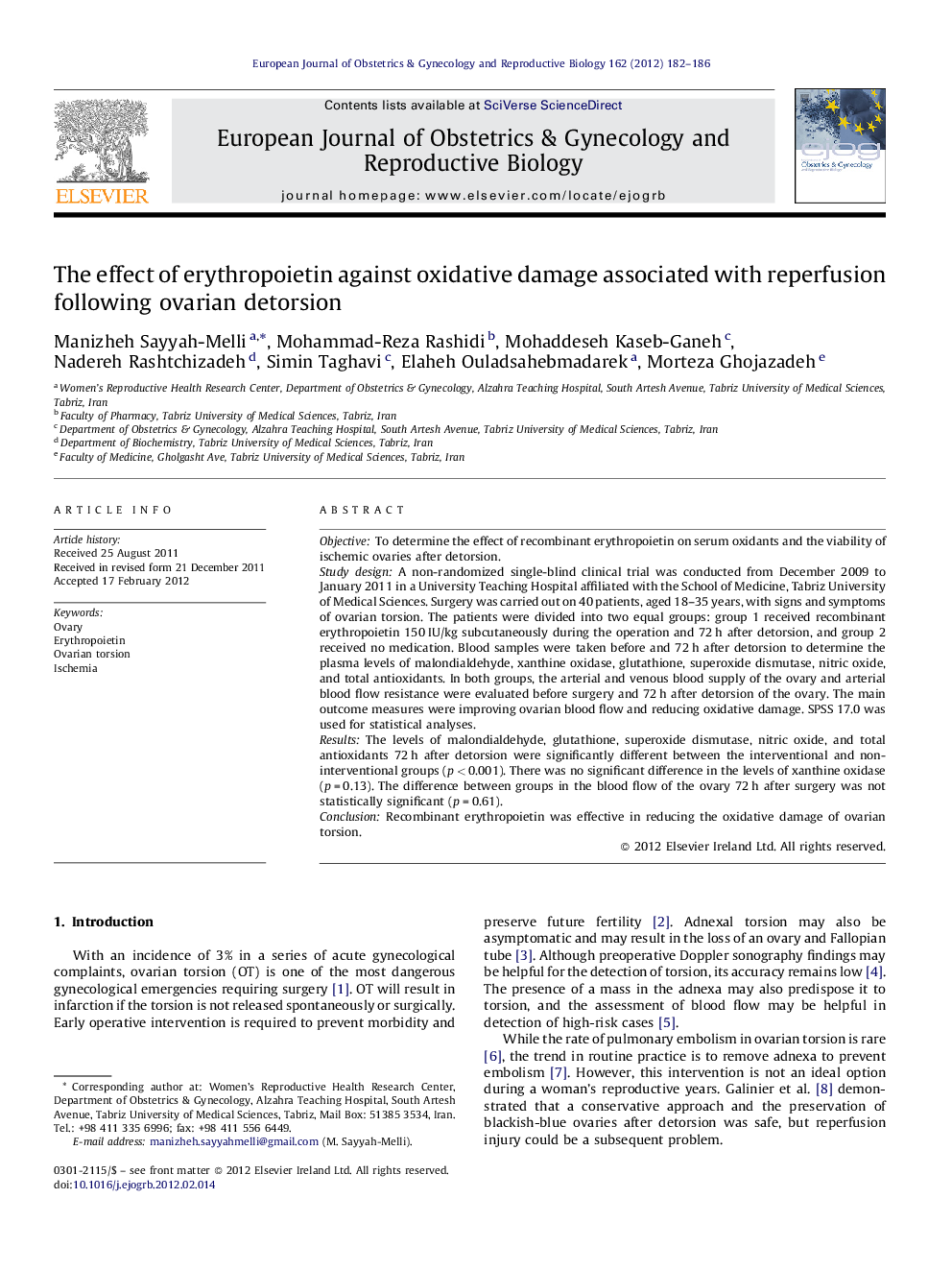| Article ID | Journal | Published Year | Pages | File Type |
|---|---|---|---|---|
| 3920583 | European Journal of Obstetrics & Gynecology and Reproductive Biology | 2012 | 5 Pages |
ObjectiveTo determine the effect of recombinant erythropoietin on serum oxidants and the viability of ischemic ovaries after detorsion.Study designA non-randomized single-blind clinical trial was conducted from December 2009 to January 2011 in a University Teaching Hospital affiliated with the School of Medicine, Tabriz University of Medical Sciences. Surgery was carried out on 40 patients, aged 18–35 years, with signs and symptoms of ovarian torsion. The patients were divided into two equal groups: group 1 received recombinant erythropoietin 150 IU/kg subcutaneously during the operation and 72 h after detorsion, and group 2 received no medication. Blood samples were taken before and 72 h after detorsion to determine the plasma levels of malondialdehyde, xanthine oxidase, glutathione, superoxide dismutase, nitric oxide, and total antioxidants. In both groups, the arterial and venous blood supply of the ovary and arterial blood flow resistance were evaluated before surgery and 72 h after detorsion of the ovary. The main outcome measures were improving ovarian blood flow and reducing oxidative damage. SPSS 17.0 was used for statistical analyses.ResultsThe levels of malondialdehyde, glutathione, superoxide dismutase, nitric oxide, and total antioxidants 72 h after detorsion were significantly different between the interventional and non-interventional groups (p < 0.001). There was no significant difference in the levels of xanthine oxidase (p = 0.13). The difference between groups in the blood flow of the ovary 72 h after surgery was not statistically significant (p = 0.61).ConclusionRecombinant erythropoietin was effective in reducing the oxidative damage of ovarian torsion.
